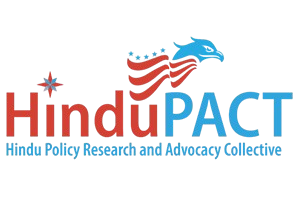In the wake of recent hate crimes against people of Hindu/Indian origin across the nation, we are getting numerous queries about our collective course of action and response. Dignity, safety, and self-respect of Hindu diaspora, including youth and school children, are in question. Beyond the safety and ample protection provided through law enforcement, we need to have a common voice, correct understanding, and a strong and effective tone to address hate crime issues arising sporadically across the country.
Preemptive Measures:
- Contact appropriate law enforcement officials ASAP. Dial 911 if you feel unsafe or have reason to think that your safety might be at risk. Do not be hesitant or afraid to contact local law enforcement.
- Contact local Hindu community leaders and institutions / temples.
- Inform details of any incidence(s) to the representatives of AHAD. Correct and timely records of incidences help us make our case strong with law makers.
- Do not panic or fear, and avoid spreading exaggerated news through the community.
Understanding our Collective Identity:
- Hindu Americans have been legally migrating to the U.S. and have successfully assimilated in the American society.
- For more than a century, Hindus have offered the best of their talent through various fields (science and research, technology, medicine and health, academia) and been a positive force in the progression of society.
- 5 million Hindu Americans are among the most educated ethnic groups.
- Hindu American students’ academic performances have added value to Universities.
- By virtue of economic and educational strength, the Hindu community has been contributing productively to the American economic and job growth.
- Many Americans and Hindus of Non-Indian origin have adopted Hindu traditions, inspired by its inherent richness.
- Hindu spiritual teachings of Philosophy and Yoga have provided solace to many Americans of Non-Indian origin.
Hindu communities have participated in many local and national charity programs, made monetary contributions, supported troops’ families, provided disaster relief, provided education/tuition assistance, held blood donation drives, provided food and clothes for the homeless, etc.

